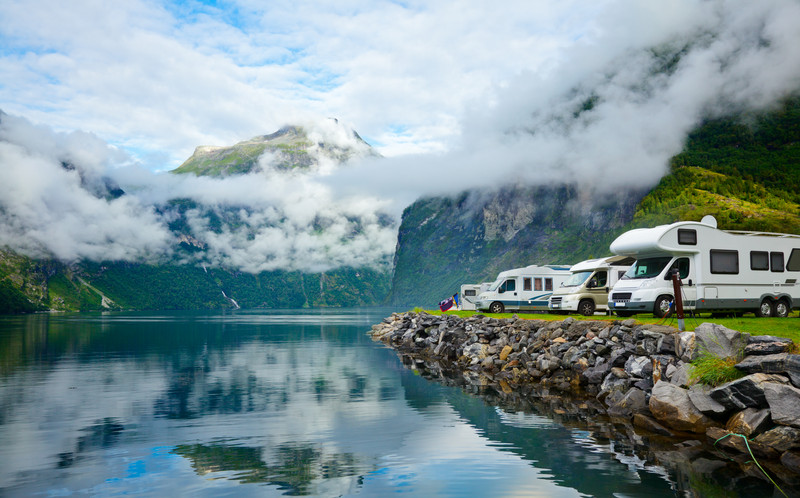
What better way to spend the holidays than with the ones that you love? If you’re wondering how you’ll enjoy this winter season with your family, why not consider the possibility of an RV road trip? There’s simply something about the thrill and excitement of being out on the open road that really brings families together.
Renting or purchasing a motorhome or RV is the perfect solution for your holiday vacation. You have everything you need right at your fingertips. Whether you like the idea of being able to escape to warmer climates like the sunny state of Florida or colder climates like the Pocono Mountains, your journey there will certainly be a lot of fun.
If you know anything about holiday traveling, you know that the conditions of the road and the weather can be tricky. That’s why it’s important to plan ahead to ensure that you’re safe as you travel across state lines with your loved ones in the toe.
To help get the ball rolling, we’ve come up with a few tips that you’ll want to keep in mind:
1. Choosing Your Destination
The skies are certainly the limit when it comes to planning an RV vacation. Keeping in mind that the holiday season brings a lot of tourists, traffic, and bad weather, it is a good idea to do a bit of research on the destination you’re looking to travel to. Some factors to consider include:
- Climate – What’s the weather like? This will be important not only so that you know what to pack, but also so that you can be mindful of what the road conditions may be.
- Parking regulations – Many states and cities have regulations as it pertains to parking for recreational vehicles. You want to check ahead of time to find out what those regulations are.
- Peak or off-season – Traveling during the holidays is going to come with a bit more vehicle and foot traffic than normal. However, there are certain locations that are prime holiday destinations. Knowing ahead of time whether or not there are going to be a lot of tourists around can help you determine which roads you’ll take and what times of day you might travel.
- Miles – How many miles will you be commuting from point A to point B? This is important when researching a destination so that you can get a good idea of how far you’ll have to drive, how long the drive might take, and how much you’re going to need to have for gas and toll.
2. Vehicle Safety
It must be understood that operating a recreational vehicle is in many ways different from operating a car. In order to make sure that your trip goes well, here are some things you want to do to make sure the vehicle is safe:
- Pre-Trip Vehicle Checklist – Incorporate important aspects such as the tires, lights, fluid levels, tow bar setup and whatever other things that will contribute to the vehicle being safe for travel. Some travelers opt to have their RV inspected by a professional prior to hitting the road to point out any necessary repairs.
- Secure All Paperwork – Make sure that your vehicle insurance, registration, and license are all packed and ready to go. As road rules change across state lines, you don’t want to be caught without them.
- Check Road Side Assistance – No one goes on a road trip expecting for something to happen, but it happens. To be prepared it is a good idea that you either enroll in a roadside assistance program or upgrade your existing contract to ensure that you’re covered no matter where you are in the US.
3. Road Safety
Here are some tips for staying safe on the road:
- Obey the Speed Limits – Roads can be very dangerous at times and since a motorhome is a lot larger than a regular vehicle it will take more time for it to slow down and maneuver. To avoid accidents, follow all the speed limits and keep a safe driving distance.
- When Road Conditions are Bad, Pull Over – If the roads are covered in snow or ice and you’re not comfortable driving, find the nearest rest stop and pull over. If there are no close rest stops, at the very least stay on main highways as they are often treated for inclement weather first.
- Take Breaks and Take Turns – Finally stop for breaks often so that you can get out and stretch. Driving for too long can cause fatigue which could lead to an accident. Also, take turns with another eligible driver.
Destination research check. Vehicle safety inspection check. Refresher course on rules of the road check. Keeping each of these guidelines in mind as you begin planning your winter holiday vacation will help your trip to go off without a hitch. Sure you can’t prepare for everything that might be thrown your way while on the open road, but this is certainly a great start. Now all you have to do is pack and prepare to create memories as you travel state to state with the ones you love.
Contact Southeast Financial today for any questions regarding RV/Motorhome insurance and financing.

